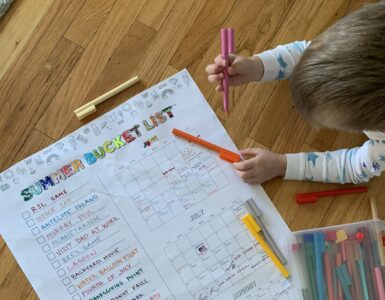Remember that Should, Could and Would are just words with really powerful feelings. But why do they get us so down and how do we change that around?
Studio 5 Relationship Coach Dr. Matt Townsend shares some ways to change your thinking.
Words Make Feelings Automatic
· All words are neutral until you place your judgment on them.
· Our words will eventually determine the feelings that cause us to either act or not act. So, if our words create less motivating feelings, we will be less inclined to act.
· We use words and symbols to create automatic responses and feelings for ourselves, so we don’t have to think everything out, every time. We also value words because they actually have a form. They feel more real to us which is why we end up arguing over our words with other people.
· Every word has a unique interpretation that we hang on it, which is based more on our past experience with the word, than the current conversation we’re having with the word.
· For example:
o Have you ever had someone call you a name and you immediately had a reaction to it?
o Or, if someone asked you where you were during the church service project that you really knew you should have attended?
o Was the reaction to what they said …
· Notice the power of these words…Check your feelings.
o Lazy, fun, special, perfect, should, smart, popular, active, healthy.
· Notice how these words make you feel
o Hurst, anticipation, anxiety, stress, alone, overwhelmed, weak?
· How do these make you feel?
o Could have- missed opportunity
o Would have- defensive
o Should have- regret
Understanding The Coulds, Woulds and Shoulds
· Coulds, Shoulds and Woulds are about possibilities lost.
o Could- Is about possibilities and comes from the verb can.
o Would- Is about seeing and checking hypothetical situations in our life and comes from the verb will.
o Should- Is a simple morale judgment based on what we deem is right and wrong. Comes from the old English word shall. Like “Thou shalt”.
· Just adding the word Have, moves it to the past, which means
o Could have- possibilities missed.
o Would have- hypothetical situations past.
o Should have- missed chance to do what I knew was right or healthy.
· Should is the most painful because it is the most judgmental. But notice where the judgment is focused with the word should. In the past, present or future?
Power and Peace Is In The Language of The Present
· Could, Would, Should…All squarely seated in the future
· Could have, would have, Should have…All squarely seated in the past.
· So Instead of all the possibilities and hypotheticals and judgments, let’s just Get In and be present in our life!
o Try On Three New Words and see what it does to your character.
· I can (turns possibilities into realities)
· I will (turns hypotheticals into choices)
· I shall (turns commandments into commitments).
o Simply saying you shall honor your father and mother is a different thought than saying you should. Saying “you will” be at the appointment is different than saying you “would” or “would have” made the appointment. Being present in our language forces our character to get present as well.
“Use Your Words To Write a Check Your Character Has To Cover”
· Matt’s story as a child when he was up to bat against the best pitcher in the league in the last inning of our baseball game. The count was two outs, two strikes, two balls. We were down by one point with two men on second and third base. I didn’t say to myself, I “could” do it, I said “I can do it, I will do it!” I kept repeating that phrase over and over and eventually did deliver on my commitment to myself. When I committed to myself, my character, my body and history made everything else happen. I closed my eyes, somehow connected with the ball and hit a double, scoring two runs.
· Using language that commits us like “I can”, “I will” and “I shall” commits our character to grow differently than other words like “I could”, “I would” or “I should”.
· That is why I suggest that people share their goals with people, to help you obligate your own character. The minute you no longer believe in what you tell yourself or others, it’s time to change. And start by making a commitment, and keeping it no matter what.
· Some other tools to increase your character language:
o Use more Yeses and Nos in your life. It’s faster and demands more realness than “I might”, “let’s see” or “I’ll try”.
o Words like “I’m going to work” instead of “I have to go to work”. Or I can be there for your dance.
· When it comes to the “shoulds and coulds” remember it’s about opportunities lost. The more we use the language of character, the more our character obligates us to do what we can, in the right way.
VALENTINES SPECIAL DATENIGHT
WITH HILARY WEEKS AND PETER BREINHOLT
IN SANDY, OGDEN AND ST. GEORGE
$50 PER COUPLE
WWW.DATENIGHTSWITHMATT.COM FOR INFO
ENTER CODE: STUDIO5 TO GET 10% OFF BEFORE CHRISTMAS.















Add comment